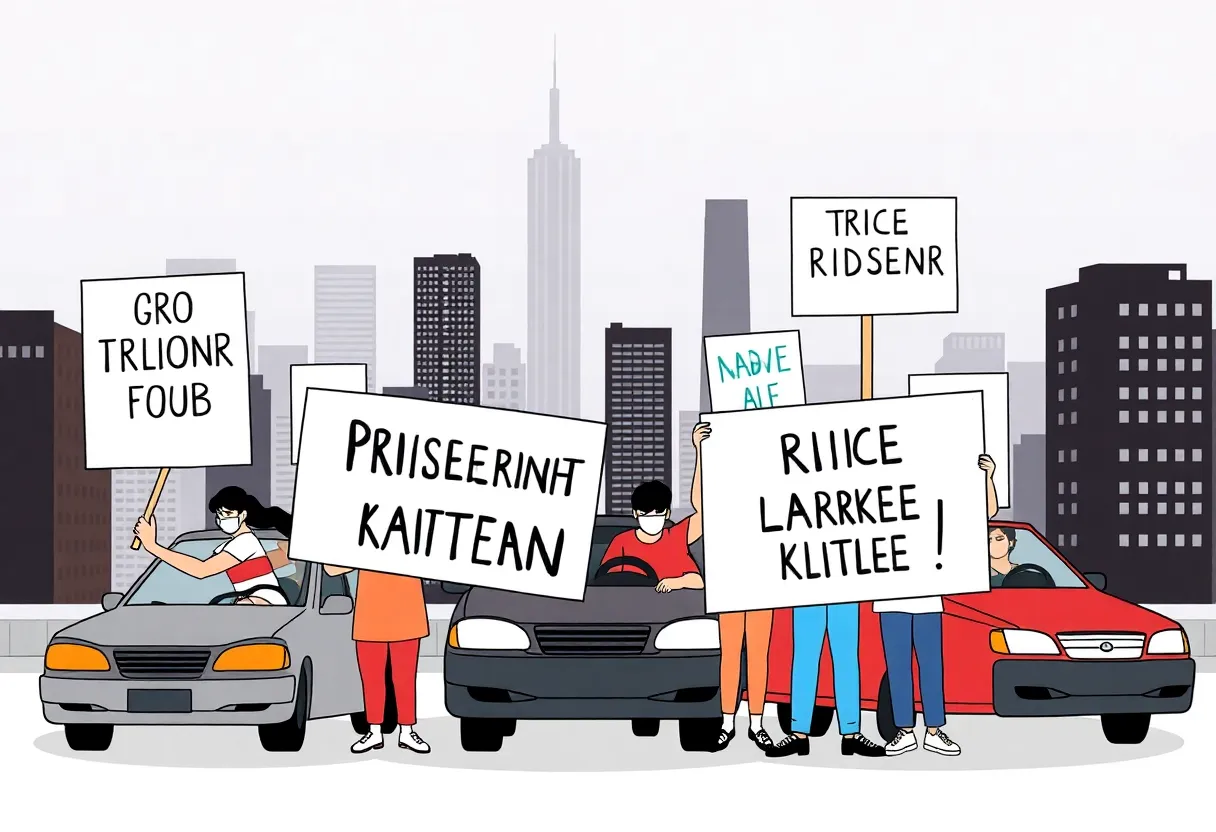California, August 30, 2025
News Summary
California lawmakers have reached a landmark agreement allowing rideshare drivers to unionize and engage in collective bargaining for better pay and benefits. Supported by Governor Gavin Newsom, this agreement represents a significant victory for labor rights. The proposed legislation also intends to reduce insurance coverage from $1 million to $300,000 per incident. While many drivers view this as a step forward for labor rights, there are concerns regarding the limitations of the agreement, particularly as it excludes other gig workers.
California lawmakers reached a landmark agreement with Uber and Lyft on Friday, granting rideshare drivers the ability to unionize and engage in collective bargaining. This development is widely hailed as a significant victory for labor rights, with the support of Governor Gavin Newsom, who has characterized the agreement as a historic collaboration between labor and business that empowers hundreds of thousands of drivers.
The core of the deal allows drivers to organize for better pay and improved benefits. In exchange for this advancement in union rights, California’s legislative leaders plan to introduce laws aimed at reducing insurance mandates for rideshare companies. Currently, drivers in California are classified as independent contractors, which has historically blocked most pathways for traditional unionization.
Under the proposed legislation, Assembly Bill 1340 would allow rideshare drivers to choose a union representative and negotiate their working conditions directly. This follows a model similar to a recent initiative in Massachusetts, which also permits drivers to unionize. To initiate the petition for union certification, drivers must gather signatures from at least 10% of active drivers.
With regards to insurance, Senate Bill 371—backed by Uber and Lyft—plans to lower the mandatory insurance coverage from $1 million per incident to $300,000. This change aims to make ridesharing more affordable for passengers while also potentially improving earnings for drivers. Additionally, Uber and Lyft are expected to benefit from relief on insurance fees as part of the terms of the agreement.
This breakthrough follows a lengthy struggle between California lawmakers and technology firms over rights for gig workers. In 2020, Proposition 22 reclassified drivers as independent contractors, effectively blocking unionization efforts but leaving room for potential legislative actions as suggested by recent court rulings. Notably, the agreement reached does not extend to other gig workers, such as those involved in food delivery services.
Drivers have expressed optimism that the collective bargaining framework could lead to better treatment and improved working conditions. Nonetheless, some critics have raised concerns regarding the effectiveness of this agreement, pointing to gaps in protections for strikes and the transparency of worker data.
Support for the pending legislation is expected to move quickly through the California Legislature, bolstered by endorsements from key state leaders, including Assembly Speaker Robert Rivas and Senate Pro Tem Mike McGuire. There remains an urgent call among drivers and advocates for enhanced labor rights and protections against unfair deactivations by rideshare companies.
Background Context
The agreement is viewed as a progressive step in the ongoing saga of gig work classification and worker rights in California. The push for improved labor rights for rideshare drivers has been persistent, marked by campaigns and advocacy efforts that culminated in this milestone agreement. Gig economy workers continue to seek broader recognition of their rights as they play a critical role in the emerging labor market.
Key Features of the Agreement
| Feature | Description |
|---|---|
| Unionization Rights | Drivers can now form unions to negotiate pay and benefits. |
| Insurance Changes | Insurance coverage requirement reduced from $1 million to $300,000. |
| Legislative Support | Backed by California Legislative leaders and Governor Newsom. |
| Petition Process | Requires signatures from at least 10% of active drivers to certify a union. |
| Limitations | Agreement does not cover food delivery gig workers. |
FAQ
What does the new agreement allow rideshare drivers to do?
Rideshare drivers can now unionize and bargain collectively for better pay and benefits.
How will insurance requirements change under the new legislation?
The mandatory insurance coverage for rideshare drivers will be reduced from $1 million per incident to $300,000.
Will this agreement affect all gig workers?
No, the agreement is specific to rideshare drivers and does not extend to other types of gig workers, such as those in food delivery services.
What is required for drivers to initiate union certification?
Drivers must collect signatures from at least 10% of active drivers to petition for certification.
Deeper Dive: News & Info About This Topic
- Los Angeles Times
- Wikipedia: Gig Economy
- Politico
- Google Search: Gig Worker Rights California
- TechCrunch
- Encyclopedia Britannica: Labor Union
- SFist
- Google News: California Uber Lyft Drivers Unionize
- WebProNews
- Google Scholar: California Uber Lyft Drivers Unionization
- Sacramento Bee

Author: STAFF HERE CORONADO
The Coronado Staff Writer represents the experienced team at HERECoronado.com, your go-to source for actionable local news and information in Coronado, San Diego County, and beyond. Specializing in "news you can use," we cover essential topics like product reviews for personal and business needs, local business directories, politics, real estate trends, neighborhood insights, and state news affecting the area—with deep expertise drawn from years of dedicated reporting and strong community input, including local press releases and business updates. We deliver top reporting on high-value events such as the Coronado Island Film Festival, productions at Lamb’s Players Theatre, community workshops at John D. Spreckels Center, and iconic celebrations at Hotel del Coronado. Our coverage extends to key organizations like the Coronado Chamber of Commerce and Visit Coronado, plus leading businesses in hospitality, dining, and tourism that drive the local economy. As part of the broader HERE network, including HERESanDiego.com, HEREHuntingtonBeach.com, HERELongBeach.com, and HERELosAngeles.com, we provide comprehensive, credible insights into Southern California's dynamic landscape.





